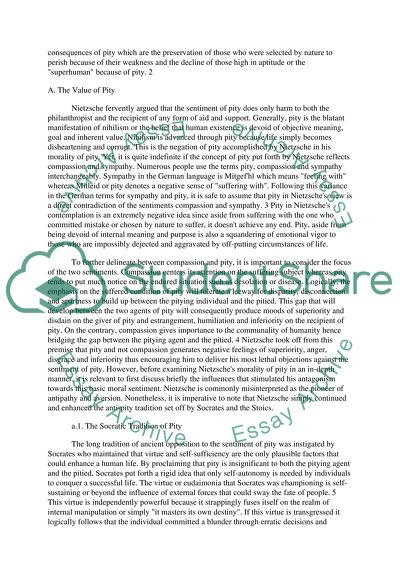Cite this document
(“Objections to Nietzsche's conception of pity/compassion/love Essay”, n.d.)
Objections to Nietzsche's conception of pity/compassion/love Essay. Retrieved from https://studentshare.org/philosophy/1511554-objections-to-nietzsches-conception-of-pitycompassionlove
Objections to Nietzsche's conception of pity/compassion/love Essay. Retrieved from https://studentshare.org/philosophy/1511554-objections-to-nietzsches-conception-of-pitycompassionlove
(Objections to Nietzsche's Conception of pity/compassion/Love Essay)
Objections to Nietzsche's Conception of pity/compassion/Love Essay. https://studentshare.org/philosophy/1511554-objections-to-nietzsches-conception-of-pitycompassionlove.
Objections to Nietzsche's Conception of pity/compassion/Love Essay. https://studentshare.org/philosophy/1511554-objections-to-nietzsches-conception-of-pitycompassionlove.
“Objections to Nietzsche's Conception of pity/compassion/Love Essay”, n.d. https://studentshare.org/philosophy/1511554-objections-to-nietzsches-conception-of-pitycompassionlove.


